

|
Background for the Play |
2) Danish and Elizabethan Features of the Play: While the setting and actual historical events of the play are Danish elements, the main element of characterization are all Elizabethan. These characters speak, think, and act like Elizabethans of Shakespeare's time. They are Elizabethan because that is what Shakespeare knew best and that is what his audience would expect and understand.
3) Psychological Elements: 4) Unanswered Questions: As indicated above, Hamlet's madness is one of the many unanswered questions in this play. The ambiguity is generally considered a strength of the play because its multiple interpretations have encourage the audiences to become more involved in the interpretation, but the famous port and critic T .S. Elliot found the unanswered questions to be a weakness of the play. 5) The Faces of Hamlet: Hamlet will speak in three "voices" throughout the play: the public voice will be full of double meanings, humor, madness, and deception to fool the various audiences in Elsinore; the one with sick humor and dark irony will be used when Hamlet is with Horatio; and in the soliloquies, Hamlet will speak of fire and vengeance, with words full of rage and fury. 6) The Intrusive Poet: While Shakespeare was respected for his ability to allow his characters to develop naturally, independent of the writer's values and beliefs, Shakespeare was intrusive when it came to Hamlet. Hamlet is a mirror for Shakespeare, speaking his theories and his philosophies on life and on the theater. This is best seen when Hamlet talks to the traveling players. 7) The Norway Subplot: Before the play begins, there has been a war between Denmark and Norway. Denmark won Norwegian lands and the king of Norway is dead. To parallel the situation in Denmark, the dead Norwegian king's brother has received the crown and the prince of Norway is quite unhappy. As the play begins, this prince, Fortenbras, intends to invade Denmark with a large army to avenge his father's death. The "warlike" atmosphere will remain in the background throughout the play. |
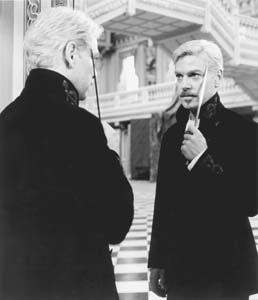
|
Act I Plot Summary |
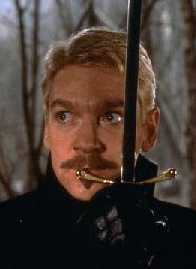
|
Act I Lecture Topics |
2. The main propose of I.i is to establish mood and setting. No major character is met until scene ii. Clearly, in the background, is the war-like preparation for the invasion from Norway. Why do the guards, and later Horatio, fail to sound the alarm or report the strange appearance to the proper authorities? They are strongly loyal to Hamlet and will secure his opinion before taking any other action. After all, the ghost looks just like Hamlet's dead father. This also suggests that Claudius may not be very popular. 3. Horatio is a scholar, but not an extremely insightful one. He participates in very little action and is there to mirror Hamlet's thoughts, allowing Hamlet to speak in one of his three "voices": the one with sick humor and dark irony. Horatio, in acts I and V, demonstrates his knowledge of Roman history. 4. Contrast Laertes with Horatio. While Horatio is loyal to Hamlet and has left school to be present at his friend's father's funeral, Laertes has been getting into trouble in France and returns home to see Claudius's wedding. 5. Contrast Hamlet's "falling star" with the "rising star" of Polonius's family. Hamlet, the prince, may not be the actual heir to the throne, though Claudius says he is. Polonius, as chief advisor to the king, has new-found status and that reflects on his children. (also, this means there's a greater impact when they embarrass him through their actions) 6. The "rotten in the state of Denmark" concept arises from the appearance of a ghost. This is an Elizabethan belief that ghosts appear to bring a crime or injustice to light. Thus, the ghost is there because of some unresolved crime. 7. Hamlet's three voices are the sickly humorous voice he uses with Horatio, the word-manipulating and twisting voice that he uses in public (this is also the "insane" voice used in Acts II--III--IV), and the horrible and rage-filled voice that is heard when he is along and speaking in soliloquies. 8. The king and queen both advise Hamlet to put an end to his mourning for his father, Gertrude with kind words and Claudius with insults. They are embarrassed because he is such a public figure and they're trying to gain acceptance from the Danish people as well as negotiate a treaty with Norway. Claudius wants Hamlet to stay in Elsinore, and it is possible that it's a part of a plan to kill Hamlet. 9. Even before he meets the ghost, Hamlet talks of suicide. This is the soliloquy "voice" which vents rage and voices frustration. Here he predicts that his mother's marriage is evil and that no good can come from it. He "senses" some crime behind it all. Also, in the speech, Hamlet expresses how dishonorable and low a man like Claudius is in relation to the dead king, Claudius's own brother. This "lowness" of Claudius will often be repeated in later acts. 10. Laertes advises Ophelia to stay away from Hamlet, because Hamlet will take advantage of her innocence and then dump her. Laertes is genuinely concerned about his sister's safety, but he is just projecting his own values and attitudes on Hamlet, who may be honorable. Ophelia states that moral advice from him is totally worthless. 11. Polonius advises Laertes to behave once he returns to France. Actually, the advise is very appropriate and valid for a man like Laertes. This also proves that Polonius expects trouble with his son and knows that it will reflect badly on his position with the royal court. 12. Polonius advises Ophelia to avoid Hamlet, eventually telling her that she's not allowed to communicate with him. He is motivated by the belief that she will make him look like a fool, but there's more: it may indicate that Polonius knows that the king plans to put Hamlet at a distance or even kill him when the time is right. 13. Is the ghost "airs from heaven" or a "blast from hell"? This concerns both Hamlet and his trio of friends who fear for his safety. However, Hamlet must speak to the ghost; and his behavior, threatening to kill his friends, is somewhat out of character because it's so impulsive. When he calls it an honest ghost after talking to it, it doesn't reflect the uncertainty that will cause him to "test" the ghost in Acts II and III. 14. As the act closes, Hamlet's couplet in the last three lines indicate his status: the end-purpose of his life has been to perform an act of revenge and then die. His bitterness is very obvious and he even curses the fact that he was born. He considers himself, from this point on, as a dead man. |
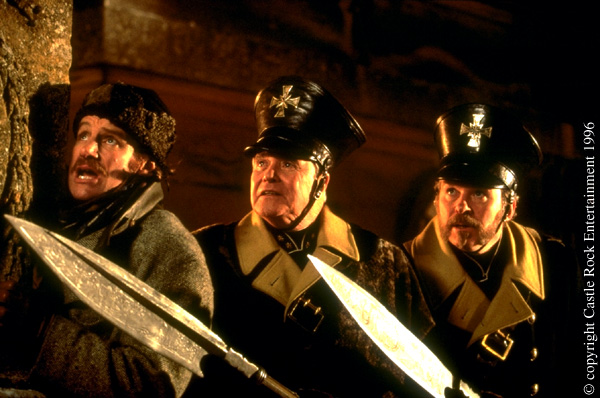
|

|
Act II Plot Summary |
|
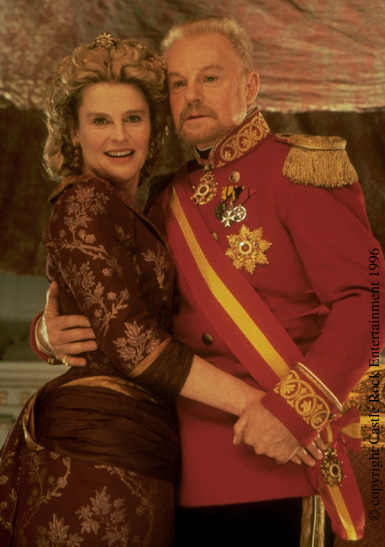
|
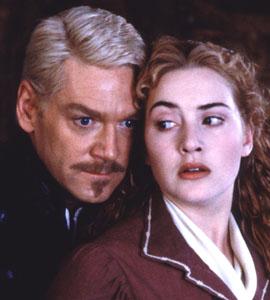
|
Act II Lecture Topics |
2. When this act begins, Hamlet has been pretending to be insane for over a month, so his meeting with Ophelia is no great shock. When Hamlet appears in Ophelia's chambers (a violation of privacy much like walking into someone's bedroom), he is loosely dressed and looking haggard. His expression is one of confusion and perplexity. He says nothing, in dumb show fashion, but acts very upset and delivers a letter to her. This is important to Polonius because he told her that she's not allowed to communicate with him. Also, Polonius believes that Hamlet's mental problems are the result of his command to Ophelia and reports his belief to the king and queen. 3. The king tells Rosencrantz and Guildenstern to keep an eye on Hamlet, but not affect his behavior, even if it means that Hamlet's causing trouble for the court. This is a direct parallel to the instructions that Polonius gives to Reynaldo. 4. The update from Norway is as follows: A) the king of Norway, learning that Fortinbras planned an invasion of Denmark, arrested his nephew B) once under arrest, Fortinbras made a deal with his uncle to invade Poland instead; and if he would he would get many more men and much more money to support his army, so Fortinbras agrees C) the new treaty terms involve a request for the Norway's army to pass through Denmark on its way to Poland. The whole plan seems questionable. The kings of Denmark and Norway are coming to terms very quickly and it isn't likely that any king would allow a foreign army to pass through his territory if they had been at war recently. 5. Polonius tends to play the "fool" most of the time, with Hamlet using suggestive language that goes over his head. Also, in lines 92--101, Polonius rambles on and then says "brevity is the soul of wit," meaning that he is lacking wit. The queen doesn't believe that Hamlet's madness has be caused by Ophelia. More insults to Polonius follow in the "questioning" scene where Hamlet asks him if he's a fishmonger, attacking his honesty. 6. The letter that Polonius delivers professes his love in no questionable terms; however, Hamlet's true feelings may or may not be expressed here. As far as we know, the madness had been planned before Ophelia's rejection, so logic suggests that Hamlet is using their relationship to confuse his enemies. Also, it would seem that he is driving Ophelia away because he doesn't want to see her hurt. 7. The first good clue that Ophelia is pregnant is in lines 203-204, dealing with two meanings of "conception." More will follow. 8. When Polonius is "questioning" Hamlet, Polonius says "Though this be madness, yet there is method in't," meaning that what Hamlet says is not just the ravings of a mad man, but can be interpreted to make much sense. Later, Rosencrantz and Guildenstern as well as Claudius will detect the same thing. 9. When Hamlet meets first with Rosencrantz and Guildenstern, he acts depressed and disappointed with Denmark and all that surrounds him. Calling Denmark a prison, he claims he has lost his mirth. Also, he becomes obsessed with the issue of whether they were sent for by the king and queen; and eventually they say they were. 10. When the players arrive, Hamlet's mood abruptly swings upward, but he still continues to mock Polonius--the "ears" of the king. 11. Asking the chief player to recite lines from the Aeneid, Hamlet has selected a scene that shows the way he would have wanted his mother to behave. As Pyrrhus (Hamlet) cuts Priam (Claudius) to pieces to avenge his father's death, Hecuba (Gertrude) shrieks in horror and tears. Polonius detects that the player is actually crying due to the sorrow of the scene, and this will be the theme of Hamlet's act--closing soliloquy. 12. Clearly with something more than a play on his mind, Hamlet asks the player if he can perform the "Murder of Gonzago" with some line changes made by Hamlet. The player says he will prepare for the performance. Of course, Hamlet intends to recreate the murder of his father, right down to the poison in his ear. By watching the king during the performance, Hamlet will see if the king shows signs of guilt. 13. Hamlet's closing soliloquy for act II, as always, is full of rage and frustration. When he sees the player cry for a fictional character, it makes him remember that the madness "game" has put an end to his mourning for his real father. His anger is directed at himself because he has a thousand reasons to kill the king and yet he hesitates. Here is a Shakespeare error: in the soliloquy, it suddenly dawns on Hamlet that a criminal seeing a play about his particular crime might confess, so "The play's the thing..." However, Hamlet must have thought this earlier because of his request for the "Murder of Gonzago" with some line changes. |
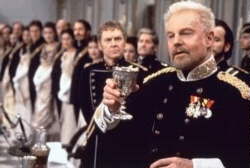
|
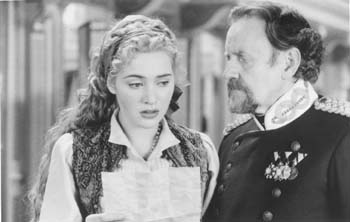
|
Act III Plot Summary |
|
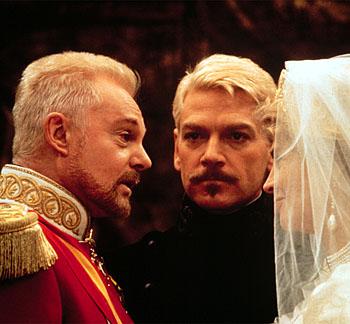
|
Act III Lecture Topics |
2. In lines 50--56 of scene one, Polonius talks about how Ophelia should "present" herself to Hamlet, saying than actions that seem noble can "sugar" over the devil's motivations. This speech serves two functions: it foreshadows Hamlet's "face painting" insult where he tells Ophelia that all women are deceivers and it will register the first signs of guilt in Claudius because it describes so well what Claudius has been doing. 3. The "To be or not to be..." speech that precedes Hamlet's meeting with Ophelia, returns to the concept of suicide, but with a twist. It's not about living or dying; instead, it's about dying now by his own hand or dying later by another's hand. Remember, he considers himself a dead man. This speech is the first of many Hamlet speeches dealing with where we go after death. Later in the play, it becomes an obsession with him. 4. In his meeting with Ophelia, Hamlet's mood swing is very severe; but, whether it's to sell the idea that he's insane or it's genuine emotional hurt because of Ophelia's betrayal, we really don't know. After she returns his gifts from the past, he asks her if she's honest. This, of course, can have multiple meanings. The mood swing develops when she lies about her father being at home (he probably knows he's being spied upon). At this point he gets angry and insulting (some films show him as violent). Numerous times, Hamlet tells Ophelia to go to a nunnery. There are three theories for this: unmarried mothers often went to convents to have their babies secretly, Hamlet feels she should become a nun because the sinful world was not meant for her, and a convent is a place of sanctuary or safety where the innocent can be protected by church law. 5. So, Ophelia, Polonius, and Claudius are now fully convinced that Hamlet's insane. Scene one closes with the king's desire to get Hamlet away from Denmark, by sending him on official business to England to collect a payment. The closing line "Madness in great ones must not unwatched go" says a great deal. Claudius feels that, at any cost, Hamlet's behavior must be controlled. 6. Though there's little of importance to the plot when Hamlet tells the players how they should perform, this section is highly interesting because Hamlet is speaking with Shakespeare's voice. For an author who usually let his characters be who they would be, Hamlet is the one exception, and it's most apparent in this very scene. 7. Before the play begins, Hamlet asks for Horatio's help in watching the king. They will see how he behaves when his crime has been reenacted (remember, he believes no one even suspects murder). Hamlet will watch but it will be difficult because many will be watching him. Ironically, in the audience, Hamlet's "performance" draws more attention than the actors on stage. 8. As the audience arrives for the play, Hamlet sits near Ophelia which he knows will make everyone uncomfortable. In lines 114-32, Hamlet makes more allusions to the possibility of Ophelia being "with child." Also, Hamlet makes a bitter and ironic joke about his father's name being completely forgotten in such a short time. 9. The play (The Murder of Gonzago or The Mousetrap) involves two performances: the first is a "dumb" show during which the actors briefly pantomime the true plot of the play, and the second is the actual full-length play. The king runs out calling for "light" after the second play has shown his crime against his brother. This situation leads to three interpretations. First, "light" could also represent truth, meaning that he does want to confess; but it could also mean that he is plagued to know how any one else discovered the crime. Second, Hamlet has now discovered that the king actually did murder his father, so he has every right to revenge; however, revenge now will be much harder because the king knows that Hamlet suspects him of the crime. Third, why does the king run out during the second play when the dumb show performed the same plot as the full-length play? There are some explanations, but most are weak. 10. During the play, Hamlet asks his mother how she likes it and Gertrude responds that "The lady doth protest too much," not knowing that the queen in the play was meant to represent her. The character in the play swears that she'll never marry another man if her husband dies; but, all--too--quickly she attaches herself to her husband's murderer. Is Gertrude completely innocent of her husband's murder? 11. Hamlet's joy over his discovery of truth is quickly converted to rage when Rosencrantz and Guildenstern tell him that he is supposed to meet his mother in her chambers and then attempt to manipulate Hamlet into revealing his inner thoughts. By saying that they can't "play upon" him, Hamlet is doing the same thing he has just done with the king: he's revealing that he knows more than they suspected. 12. After Claudius goes to his chambers, he tells Rosencrantz and Guildenstern that they will accompany Hamlet to England and that he will write the "commission." There is no proof that Rosencrantz and Guildenstern know the orders are for Hamlet's death upon arrival in England. The king then tries to pray, but quickly learns that his prayers are "bootless" because God can never forgive him unless he gives up the crown and the queen. Even if he wanted to give them up, he feels that doing so would be as much as a confession to the murder of his brother. Thus, he feels that his soul in forever damned. It is difficult to say if guilt or fear motivate Claudius more, though there is surely a mixture of the two, guilt having already been established. 13. While the king is attempting to pray, Hamlet has the perfect opportunity to kill Claudius; and the situation is so private that Hamlet might even avoid the blame for killing his uncle. This leads to two of the weakest plot elements in the play. One, Hamlet won't kill the king while he's praying because it will send his soul to heaven, and he wants his uncle's soul in hell forever. But, if Hamlet is so smart, he should be able to see what Claudius sees, that there is no way that God can ever forgive him. Two, Hamlet says he'll kill the king when he's involved in "sin"; but when Hamlet kills Polonius, thinking that he's the king, there is no "sinful" activity going on, unless it be spying on his step-son, which isn't much of a crime. 14. Of course, Hamlet kills Polonius thinking it's really Claudius and then feels grief, though he calls the dead man "wretched, rash, intruding fool." He intends to speak daggers to his mother in order to make her see that she's married to a murderer. As before, he contrasts the greatness of his father to the inferior quality of Claudius. After he tells her that she's too old to fall in love, he sees the ghost, for the second and last time. The ghost demands action, and Hamlet's behavior her convinces his mother that his insanity is beyond help. Through the rest of the play, Gertrude will do what Hamlet asks her to do, but her motivation can be given in two ways: she may obey him for fear that he will snap again and kill someone else in a fit of rage, or she may actually accept the idea that Claudius killed her first husband so she is putting a careful distance between Claudius and herself. |

|
Act IV Plot Summary |
|

|
Act IV Lecture Topics |
2. The main focus of scene i is to accomplish two related aspects. After this, the center of attention becomes the obsession with finding Polonius's body; the reason for this appears to be that the king is being political by attempting to "cover-up" the incident because his popularity with the people is already weak. From hiding Hamlet's madness to keeping Polonius's body from public view, Claudius's plans for secrecy will backfire and explode at the start of Act V when he tries to bury Ophelia "quietly." 3. In scene ii, there is the usual playfulness with that we have come to expect from Hamlet when dealing with Rosencrantz and Guildenstern, but Hamlet is a little more suggestive of Denmark's politics when he calls Rosencrantz and Guildenstern Claudius's sponges. Later, Hamlet cryptically states, even more politically, that the people don't support the king and that the king is a "thing" or an empty title. This will be repeated often in this act. In the very next scene, Claudius states that Hamlet is loved by the multitudes, and this may imply that Claudius is not loved by them. Claudius has said that the people of Denmark would never support putting Hamlet in prison, regardless of the severity of his crime. 4. In scene iii, Hamlet has returned to his madness act, possibly for the same reason that Gertrude has reported it to the king. Still, Hamlet takes the opportunity to employ some choice insults for Claudius. In his riddle about a beggar, worm, fish, and king, Hamlet reflects on the food chain in life, but says more. A king, when all is said and done, is going to be worm food eventually, as are we all. Thus, Claudius's time of "greatness" is terminal. Also, Hamlet will use creative word play in lines 34-39 to tell Claudius to "go to hell" and then that he will be able to "nose" or smell Polonius's body under the stairs in a month. The crudeness continues when Hamlet says of Polonius, "He will stay till you come." Hamlet is having risk-free fun because he knows that there is no relationship between himself and the king which remains to be damaged. 5. While it's completely clear that the king intends to have Hamlet killed upon his arrival in England, there is no proof that Rosencrantz and Guildenstern are aware of the letter's contents. Hamlet, however, has little doubt that his "friends" are intentionally leading him to his death. 6. The captain of Norway's army seems to take a different view from Hamlet concerning the impending war in Poland. The captain feels that the whole enterprise is a pointless effort, certainly not worth the lives it will cost. Hamlet remains non- judgmental as he listens and later tells the captain that the situation is made possible due to a surplus of both men and wealth, otherwise the goals would be more reasonable. (note: he uses a voice with a stranger that isn't one of the 3 voices identified) In his following soliloquy, he will return to his voice of bitter and raging irony. 7. "How all occasions do inform against me..." is the way Hamlet begins, meaning that he is inactive while all others around him are "doing." He claims that human reason elevates man above all other creatures, and there must be something wrong with him for allowing reason to stay his hand continually. He calls it one part wisdom and three parts coward. Next, he claims that right before his eyes, a prince is leading thousands to their deaths, just for the honor and not the profit. He says that is true greatness--to fight for something worthless when it's a matter of honor. This, of course, connects with killing Claudius, which surely will bring Hamlet no profit. He closes scene iv with "My thoughts be bloody, or be nothing worth!" 8. In scene v, the attention is instantly focused on Ophelia, now that Hamlet has departed. Her insanity, in contrast to Hamlet's, is real. Her songs, however, tend to indicate that she has more trouble than a dead father and a lost lover. The two songs in lines 50--68 are the most suggestive. They imply that she and Hamlet have been very close, to the point of producing a child. If this is so, then the combination of a fatherless infant, loss of husband, and loss of parent may easily be seen as the reasons for her insanity. 9. Claudius's sorrow for Ophelia's insanity is sympathetic with the queen's. He says that sorrows come in "battalions," and still he doesn't know that more are yet to come. Also, for the king's concern, look at lines 83--84 which indicate concern over how the people will react. Again, because Hamlet is away, attention must be focused in another area--this time on Laertes. 10. A messenger reports a mob or riot led by Laertes. By their chant to make Laertes king, they indicate that Claudius is equally unpopular with the lower class (waterfront people) as he is with the middle class. When Laertes confronts Claudius, Laretes's speech is filled with a multitude of threats, clearly in contrast to Hamlet who masks his meaning and intentions. Laertes says "I dare damnation" in order to get revenge, and he really means it. The king may or may not be able to calm Laertes for the moment, but the arrival of the mad Ophelia divert's Laretes's attention. To end this scene, Laertes says that Claudius must answer for the dishonorable (politically quiet) treatment of his father's death. This will parallel his rage over Ophelia's burial in act V. 11. Scene vi is very brief and is used to refocus on Hamlet, even though he's away, before returning to the disrupted lives of Laertes and Ophelia. Hamlet's letter to Horatio is vague in detail because there's no guarantee that it won't fall into he wrong hands. Hamlet tells Horatio about the pirate attack, his capture, and the continuation of their ship for England. He also indicates that there is much more to tell. There seems to be enough of a possibility that the pirate attack may have been planned by Hamlet because it accomplishes exactly what Hamlet most desired at this point: he gets to return to Denmark with an excuse and he gets rid of the two spies who have continually followed him. 12. Scene vii returns to Laertes and Ophelia. As Claudius and Laertes discuss the reasons behind the quiet burial of Polonius and the lack of punishment for Hamlet because of it, they receive the letter from Hamlet saying that he returns tomorrow. Since Hamlet will be returning "alone," Laertes and Claudius begin their discussions of a murder plot for Hamlet. The king tells of a Frenchman who will back Laertes in a fencing contest against Hamlet. With the addition of a double dose of poison, they will be rid of Hamlet. Claudius also solves another problem with this plan: if Laertes kills Hamlet, the mob will no longer follow him and his anger at the king will be diminished and less dangerous. Restating his willingness to lose his soul, Laertes says he's willing to cut Hamlet's throat in a church. 13. Unlike Gertrude's report of Polonius's death which we had already seen, the report of Ophelia's death is long and packed with enough detail so we can make some judgments. The question of accidental death or suicide will remain open and complicate the burial details for the beginning of act V. |
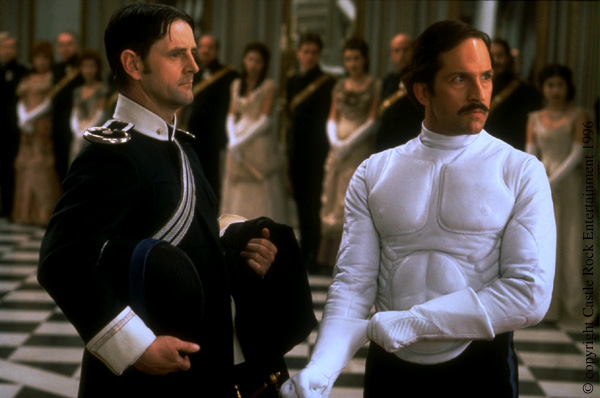
|
Act V Plot Summary |
|

|
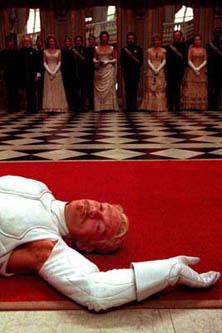
|
Act V Lecture Topics |
2. The most logical explanation for Hamlet's presence in the graveyard is that he seeks a quiet and secret place to discuss matters with Horatio before he returns to Elsinore. While Hamlet wants to be unobserved, Claudius has even more reason to conceal the actions taking place. His intention to bury Ophelia" secretly" in consecrated ground totally backfires. Because he wishes to keep this "questionable" deed quiet, few people know; so Horatio is unable to tell Hamlet about her funeral and Hamlet's unplanned behavior at the grave eventually erupts into a scandal that would be news to all of Denmark in a short time. 3. As a part of the comic relief for the bloody scenes to follow, the grave digger and clown provide multiple elements of humor that will serve as the first of three injections of humor in the act. The other two will arrive at the middle and end of the scene, with Osric and the ambassadors from England. Here, though, the two comics are talking about legal issues of state and sound like lawyers with questionable vocabulary. While the riddle really isn't funny, the surrounding dialogue is. They see the truth: Ophelia is being buried in consecrated ground only because she belonged to an important family. Otherwise it would be considered a crime against the church. The second humorous aspect is when the grave digger talks about Hamlet to the stranger who actually is Hamlet. He intentionally mocks Hamlet's questions, sounding like Hamlet himself. 4. In the reflection on Yorick's skull, Hamlet does more than reflect on our eventual fate in death. The skull reminds him of a former "loved" one who has been taken from him forever, another lost link from the happy past. This clearly foreshadows his reaction on the discovery of Ophelia's death. In addition to the loss of a loved one, Hamlet also feels the crumbling of his past in conjunction with guilt at having driven Ophelia to her death. Unlike Laertes, Hamlet feels sorrow over their grave-side fight which quickly follows. 5. When abusing the priest conducting the funeral, Laertes is not interested in the debate over whether Ophelia committed suicide. He is in rage and personally insulted that his father and sister were given unimpressive funerals. Laertes's role in the grave-side fight is easy to explain, but Hamlet's behavior is a little unexpected. Fighting inside the grave is something that Hamlet later regrets and the only valid explanation is that as with the situation when he killed Polonius--Hamlet was surprised and acted before he thought. Again, this is not Hamlet's general mode of behavior. 6. Before the arrival of Osric, the opening of scene ii simply clarifies some ambiguous information concerning Hamlet's sea journey. Hamlet actually has the letter, written by Claudius, that orders Hamlet's death. We must assume that Osric is taking on Polonius's old job since he receives a similar treatment to what Polonius usually received. This is the second element of humor in the act. While the terms of the contest aren't very important (Laertes must score 8 of the 12 hits to win the event), Hamlet's attitude is interesting. Horatio senses a trap, but Hamlet has no concern over it. If Claudius will make another attempt to kill Hamlet, so be it, and let fate decide the game. 7. As the fencing match is about to begin, Hamlet extends his regrets to Laertes for what has happened. Laertes says he accepts in nature (emotionally) but not honor (publicly). This ironically proves true when Laertes shows his sorrow for killing Hamlet, though it may have something to do with Laertes's fear of meeting his God. 8. As with many of Claudius's plans, the plot to poison Hamlet backfires when the truth is revealed and Claudius also dies. Claudius's plan is a rather treacherous one: if successful, he will claim that Laertes is responsible for both poisons and be rid of his chief opposition. 9. Horatio wants to join Hamlet in death, but he must live on to make the story public. Horatio is the only one who knows all of the events from Hamlet's point of view and Horatio knows of the letter that ordered Hamlet's death. The arrival of Fortinbras and his assumption of the role of king doesn't seem to be well-supported in the plot developments. There is no clear reason for this to happen. Just because he has Hamlet's "voice," doesn't mean he will be accepted by the people. 10. Hamlet's final words, "the rest is silence," like so many other Hamlet lines, have multiple meanings. It may mean that he has found the answer to be that death is nothing more than silence or that the rest means his story has come to its conclusion and there's nothing left. The final elements of humor, quite ironic, is the arrival of the English ambassadors who have come to collect their reward for killing Rosencrantz and Guildenstern, not knowing that the deed wasn't really wanted and the employers are now dead. |
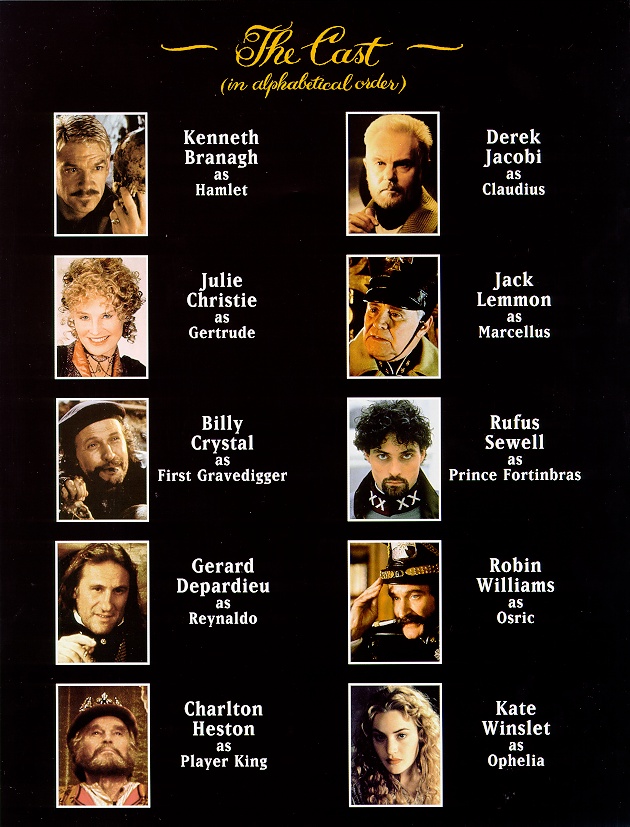
|